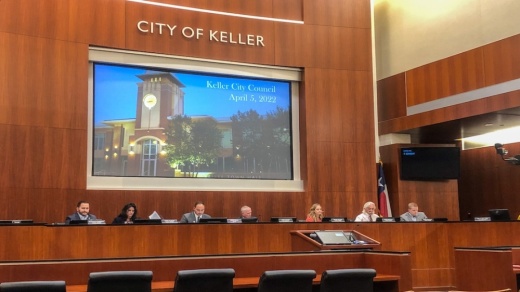At its April 5 meeting, Keller City Council approved a food truck ordinance as their use grows throughout the city. The ordinance gives a framework on how food trucks and mobile vendors can operate, according to the agenda item’s memo.
One of the main updates is that food trucks can not remain parked overnight unless they are in a food truck court, which is a property used for one or more food trucks or mobile vendors as one of the uses of the property, or as part of an approved special event permit, the memo states.
This means that food truck and mobile vendor sales are limited to 6 a.m.-midnight, according to the ordinance. However, food trucks or mobile vendors are allowed to set up shop one hour before 6 a.m. and must leave no later than one hour after midnight.
In addition, food trucks and mobile vendors can not operate in the same location for more than eight days per month, according to a presentation by Community Development Director Julie Smith.
Currently, food trucks are issued permits by the Keller Fire Prevention Division for no fee and due for inspection every six months, according to a presentation at the meeting. But the ordinance now requires food trucks to pay a $50 annual permit fee “to help offset the administrative costs” related to inspections by the fire department.
City staff compared food truck ordinances in other cities throughout the Dallas-Fort Worth metroplex and discussed options among City Council, the planning and zoning commission, the Keller Farmers Market and food truck vendors to come up with the changes, the memo states.
The Keller Planning and Zoning Commission unanimously voted to approve the updates March 8, according to the memo.
All City Council members present at the meeting voted in favor of the ordinance except for Place 6 Council Member Ross McMullin.
“For me, more government regulation is typically not the answer to encourage economic involvement,” McMullin said.
According to the resolution, any person or business who violates any of the ordinance provisions will be charged with a misdemeanor and fined an amount not to exceed $2,000. There will be a 30-day grace period for existing food trucks to comply with the new ordinance, Smith said at the meeting.





